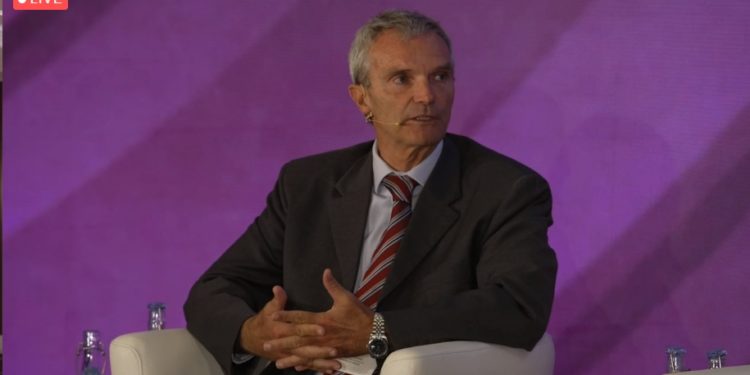In the lead-up to the Ninth Session of the Conference of the Parties (COP9) of the WHO Framework Convention on Tobacco Control (WHO FCTC), numerous issues remain obscure, for instance, the lack of a serious discussion on tobacco harm reduction, and secrecy surrounding the topics to be discussed. A practice is driven by a censorship approach that does not accurately reflect current tobacco control policies that are enigmatic, not based on science, and based on censorship of media outlets. The FCTC has lost sight of its original purpose: to ensure safe and healthy lives for everyone, wherever they live in the world.
Developed within the World Health Organisation 15 years ago, the FCTC is a consensus-based agreement that affirms everyone’s right to have the best possible health. A response to the globalization of the tobacco epidemic led to the development of the treaty. Additionally, it looked at complex factors such as foreign direct investment (FDI), liberalization, and trans-border trade.
The WHO continues to deny the effectiveness of low-risk nicotine delivery products as a way to fight to smoke worldwide, despite harm reduction also being one of the major focuses of the treaty. Rather than focusing on reducing smoking and addiction, FCTC demonizes smokers. According to the WHO’s recent announcement, there will not be a discussion on the topic of safer nicotine alternatives at this year’s FCTC COP9, which takes place from November 8 to 13 in 2021, and that they will wait until the COP10 in 2023.
The WHO carry to ignore electronic cigarettes, a potentially life-saving device that can save millions of lives every year even as tobacco still kills eight million people annually. Some of those deaths are directly linked to smoking-related diseases. Based on biased reasoning and without scientific evidence, the WHO has imposed unjustified bans on these life-saving devices, pressing countries to outlaw electronic nicotine delivery systems and non-nicotine delivery systems.
Recent developments in the UK, however, have changed the approach towards safer nicotine delivery products. In a ground-breaking decision, The Medicines and Healthcare products Regulatory Agency declared the opportunity to use e-cigarettes as a prescription for National Health System (NHS).
Isn’t time to rethink the approach adopted so far on alternative and safer products to conventional cigarettes, if national governments are trying to deatch their public health policies from the WHO directives? It is now time to get over the influence of billionaires who heavily influenced international regulatory bodies affecting the health of millions of people
A somewhat similar development was seen in the US, where the Food and Drug Administration (FDA) has recently approved the sale of electronic cigarettes as a less harmful alternative to conventional cigarettes, marking a defining moment for THR.
Professor Polosa, Founder of the Centre of Excellence for the Acceleration of Harm Reduction (CoEHAR), is deeply concerned that the World Health Organization is not considering the recent positive progress towards much safer combustion-free nicotine products.
Isn’t it time to rethink the approach adopted so far on alternative and safer products to conventional cigarettes, if national governments are trying to detach their public health policies from the WHO directives? It is now time to get over the influence of billionaires who heavily influenced international regulatory bodies affecting the health of millions of people.
“That is what clinical medicine has taught us after twenty years. Patients are seeking to avoid the stigma of smoking while still enjoying the ritual and socializing features of smoking. And this is a fact!
The FCTC neglects any relevant scientific data and continues to adhere to a “quit or die” philosophy. So far, the mantra has failed to accomplish all of the treaty’s goals.
Professor Polosa disputes the notion that smokers want to be categorized as patients in need of medication when using drugs to counteract smoking dependence. When it comes to working with smokers, it is very challenging since they don’t want to pay for medication and wouldn’t want to be medicated.
To discover a safe method of delivering nicotine without the toxicity of combusting cigarette smoke, smokers desire to vape as it maintains the ritual of smoking. They are also unaware of the psychology of smokers who want to quit but do not want to give up cigarettes.
In the future, we will see if other countries follow the UK’s lead on safer alternative products, forcing WHO to admit its mistakes,
That is what clinical medicine has taught us after twenty years. “Patients are seeking to avoid the stigma of smoking while still enjoying the ritual and socializing features of smoking. And this is a fact!” Polosa said.
The CoEHAR and other health authorities in England as well as regulatory bodies internationally have confirmed that e-cigarettes are less harmful than conventional cigarettes.
“Despite having a country, the UK, who adopted electronic cigarettes as a tool to curb its smoking rate, it is alarming that WHO commissions poor quality research and perpetuates misinformation campaigns against them. In the future, we will see if other countries follow the UK’s lead on safer alternative products, forcing WHO to admit its mistakes,” Polosa said.






